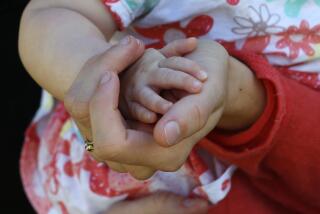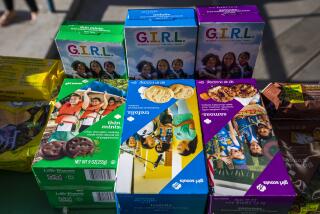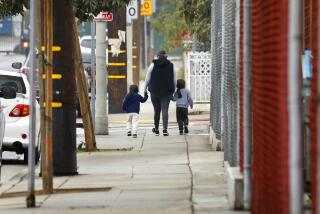‘Milk ladies’ helping needy mothers one milk run at a time
Child welfare agencies call them the “milk ladies.”
For nearly 30 years, the women have trekked the Chicago area dropping off cases of brand-name baby formula for mothers who can’t afford to feed their infants.
The original eight women have been friends for years, gathering once a month to rehash high school memories and share stories about their own children while making the deliveries. Now, the founders are joined by their daughters and relatives. Together, they have raised $2.6 million through donations and grants.
The trips have strengthened old friendships and nourished new ones. But mostly, they’ve united a small group of women hoping to chip away at poverty, one milk run at a time.
“I have eight [children] of my own. There’s nothing worse than to see a child hungry,” said co-founder Barb Isaacson, 80. “We decided to do something about it in our own little way.”
Officially, the group goes by Infant Inc., an acronym for its guiding philosophy: Infants Need to Find Adequate Nourishment Today. The Winnetka-based nonprofit has given formula and plastic boxes with hand-woven blankets, infant clothing, diapers and small gifts for the mothers to more than 60 organizations.
It began in December 1982, when Dorothy Clarke heard on the news that mothers struggling in that era’s recession were diluting their baby formula with sugar and water.
A few weeks later, Clarke and some of her closest friends from Immaculata High School made their first delivery to Chicago-area pantries. On that route, they learned the magnitude of the problem.
So many new mothers couldn’t make ends meet. Many were stuck in limbo waiting for welfare eligibility to kick in while their babies went without. Others were malnourished or rebounding from drug addictions and couldn’t provide breast milk.
“It was such a shock to find out, but there was really no judgment involved,” said Clarke, 80. “They’re babies. They need to be fed.”
The women spread word of their project in church bulletins and rallied friends and neighbors for donations.
About a dozen others volunteered, including their relatives, fellow parishioners and other Immaculata alumni. Today, some members are ill or can’t make the deliveries, so they stay behind collecting money and knitting booties.
The monthly trips are more than just an outing for Carla Nowak, 52, whose mother, Joan Iberle, was a co-founder. Nowak met the original milk ladies growing up, and they even attended her wedding, though she didn’t know them very well.
That changed after she joined the group in 1998, shortly after the birth of her first child. The relationship changed again when her mom died in 2005.
“It makes me feel closer to my mom every time I get to spend time with them,” Nowak said.
On a recent milk run, heavy rain and lightning didn’t deter the group from making deliveries. In their raincoats, they loaded case after case of baby formula into minivans before setting off for Chicago’s West Side.
One of their stops was at Marillac Social Center in the East Garfield Park neighborhood, where the average annual income for women who depend on child care services or other programs is about $15,000, according to Chris Johnson, director of social services.
“This is great news for us,” exclaimed one of the center’s employees after Clarke, Susie Coughlin and Jane Kirkley removed the cases from the van. After taking the formula into the building, two workers thanked the women with smiles and handshakes.
Though the women hardly ever meet the mothers they help, they save the thank-you notes they receive. “God has blessed me by having people like you who care to help the needy,” one letter said.
By noon, the deliveries were finished, and the women had gathered at an Italian restaurant for lunch. Smiling, they sat down and started chatting about Kirkley’s college-bound daughter and another volunteer’s ailing mother-in-law.
When asked how long the milk ladies planned to continue, the answer was brief, but honest: until the money runs out and people stop helping.
Then they went back to eating and laughing and started making plans for next month’s milk run.
More to Read
Start your day right
Sign up for Essential California for news, features and recommendations from the L.A. Times and beyond in your inbox six days a week.
You may occasionally receive promotional content from the Los Angeles Times.





